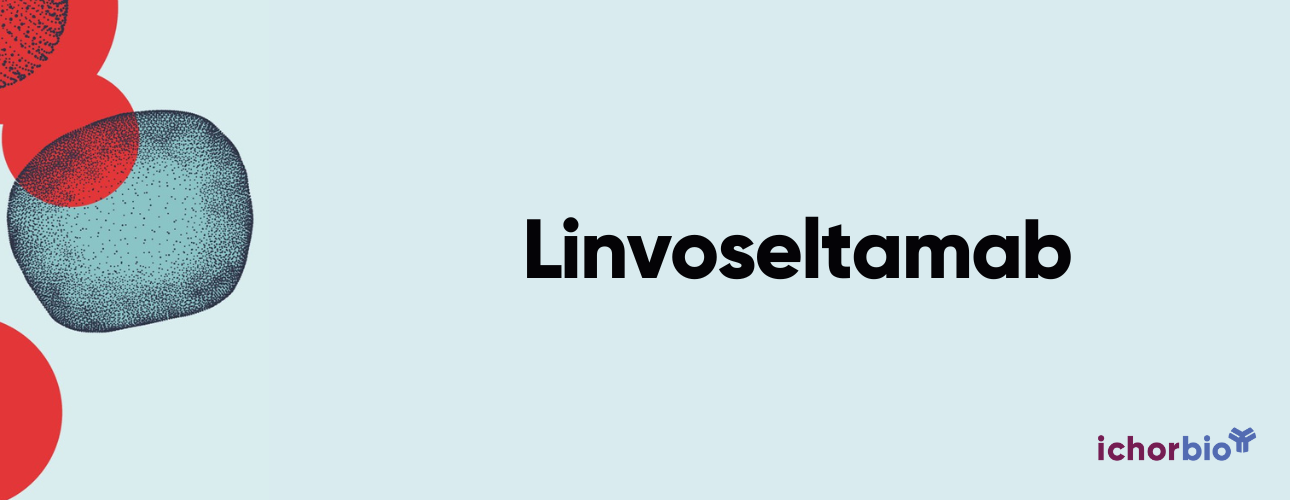FDA Approval Spotlight: Linvoseltamab — A BCMA x CD3 Bispecific for Multiple Myeloma

FDA Approval Spotlight: Linvoseltamab — A BCMA x CD3 Bispecific for Multiple Myeloma
In July 2025, the FDA granted accelerated approval to linvoseltamab, a BCMA × CD3 T-cell engaging bispecific antibody, for the treatment of relapsed or refractory multiple myeloma in patients who have received at least four prior lines of therapy. This marks another significant milestone in the therapeutic application of bispecifics within hematologic malignancies — and reinforces the expanding role of BCMA as a validated immunotherapeutic target.
FDA Approval Notice – Linvoseltamab (FDA, 2025)
Mechanism of Action: T-Cell Redirected Killing
Linvoseltamab is a bispecific IgG4-based antibody engineered to bind:
-
B-cell maturation antigen (BCMA) on plasma cells
-
CD3ε on T cells
By simultaneously engaging BCMA and CD3, linvoseltamab brings T cells into close proximity with malignant plasma cells, triggering T-cell activation, cytokine release, and target cell lysis via granzyme/perforin pathways. This redirection of cytotoxic T cells circumvents the need for MHC-I antigen presentation — a notable advantage in the immune-evasive microenvironment of advanced multiple myeloma.
Unlike CAR-T therapies targeting BCMA, linvoseltamab offers off-the-shelf availability, with a fixed dosing schedule and no need for ex vivo cell engineering.
Clinical Development and Approval Basis
Study: LINKER-MM1
-
Phase: 1/2
-
Trial ID: NCT03761108 – ClinicalTrials.gov
-
Patient population: Heavily pretreated relapsed/refractory multiple myeloma (median of 5 prior therapies)
-
Primary endpoints: Overall response rate (ORR), safety, progression-free survival (PFS)
Efficacy Highlights:
-
ORR: ~71% in the high-dose cohort
-
VGPR or better: ~50% of patients
-
Median PFS: Not reached at time of submission
Safety Profile:
-
Most common AEs: Cytokine release syndrome (CRS), neutropenia, anemia
-
CRS: Mostly grade 1–2, manageable with step-up dosing and supportive care
-
No significant neurotoxicity (ICANS) compared to other bispecifics or CAR-Ts
BCMA: A Validated Target in Myeloma
BCMA (TNFRSF17) is a cell surface receptor highly expressed on plasma cells and multiple myeloma clones, but largely absent from non-hematopoietic tissues — making it an ideal immunotherapeutic target. It plays a role in:
-
Promoting plasma cell survival via APRIL/BAFF signaling
-
Regulating NF-κB and MAPK pathways
-
Enhancing resistance to apoptosis and proteasome inhibitors
CD3-Based Bispecifics: The Broader Context
Linvoseltamab joins an expanding class of CD3-directed bispecific antibodies approved for hematologic malignancies, including:
-
Teclistamab (BCMA × CD3)
-
Glofitamab (CD20 × CD3)
-
Mosunetuzumab (CD20 × CD3)
Key design challenges in this format include:
-
Balancing affinity for CD3 to avoid off-target T-cell activation
-
Engineering IgG4 isotype backbones with stabilized hinge regions
-
Managing cytokine release syndrome (CRS) via split dosing or step-up titration
Review: Bispecific Antibodies in Multiple Myeloma (Blood Cancer J, 2023)
Implications for Researchers and Developers
This approval emphasizes several key themes for research:
-
BCMA biology and resistance
-
T cell redirection platforms
-
Immune evasion mechanisms in plasma cell malignancies
Final Thoughts
The FDA’s approval of linvoseltamab reaffirms the clinical potential of bispecific T-cell engagers, especially for high-burden hematologic malignancies like multiple myeloma. For researchers, it highlights the growing importance of BCMA as a target, and the value of robust preclinical tools to evaluate immune synapse formation, cytotoxicity, and escape mechanisms.


